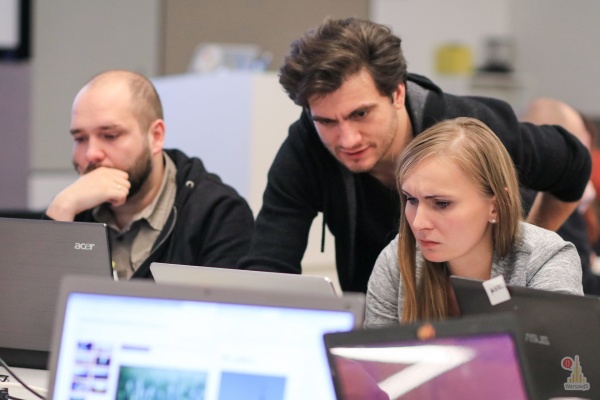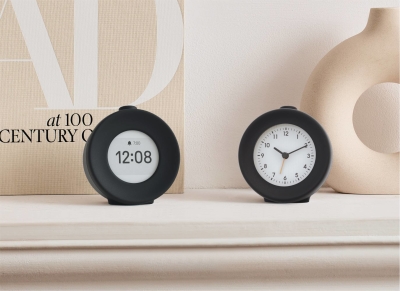
Why I left Facebook
This post was originally published on Medium by Piotr Zientara,
Recently my friend asked me if I could write an essay on why I quit Facebook, as she found my afterthought interesting.
The irreversible move, to delete my account instead of just deactivating it, had some consequences for my recent life and coincides with a lot of changes which I wanted to share.
I registered in September 2007 and from that time I earned over 800 friend connections. I treated this communication platform quite seriously. Besides folks I met many years ago at primary school, secondary school, and Warsaw University Philosophy studies.
I also kept in touch with colleagues from my previous jobs, my family from Australia, tennis friends, WarsawJS community members and even students who I taught seven years ago. The social consequences of leaving seemed to be dreadful and before I made the final step I had three major fears:
That I would lose contact with my friends and communities. Not necessarily my closest friends but a large group of friends who proved many times to have a positive impact on my life. They delivered inspiration, put some work into selecting the posts they shared and thus improved the quality of the feed I was scrolling through everyday. They also liked to share things they found important so I could be in touch with matters of their concern. I considered missing all of it a sacrifice.
That I would lose support I could have. Friends on Facebook were an almost unlimited source of instant help in many trivial but also complicated problems. The network that grows for several years included experts in several important fields, artists, doctors, lawyers, technology experts, scientists, journalists, teachers, accountants, managers, students, parents, and more.
That I could feel less important, motivated and powerful (move towards lower energy levels), as I lose the appreciation and gratitude I was getting from my Facebook friends. I was afraid that my social needs won’t be satisfied on the level that I had.
Facebook users don’t just like posts because they like them. They also give incentives for others to do better. The mechanism goes this way: for example, Alice posts something and then Bob and the others either like it or they don’t.
If a post becomes popular, then it’s positive feedback and Alice learns to commit to more posts like that. The source of anxious thoughts is this: what will happen when I don’t get these stimuli? Is it going to stop me from improving?
Note that I’m not listing FOMO (Fear of Missing Out). However, it’s a notion in fashion, it’s an argument supporting and refuting literally every choice, we’re always missing out on something.
All off these pros for keeping the profile seemed to be weaker than the cons I was thinking of and experiencing everyday:
Time, or a better way to say it: focus and attention. Most of the Facebook users I spoke to after the resignation guessed that having more time was crucial for me. To be more precise it’s not exactly about time but more about attention and focus. Before I resigned, I made some research on the time I dedicated to social media and it was approximately 20 minutes daily, so I didn’t assess it as a significant time-loss. This reasonable result was probably caused by my previous attempts to limit Facebook activity, which proved wasteful. The important part is that I had on average 20 sign-ins daily and this madness was also limited as every hour I thought about signing in several times! The satisfaction coming from instant dopamine was too easy to achieve and it was highly addictive.
Being active on Facebook enforces narcissistic behaviours (for sure!) which probably results in some kind of personality change. Maybe the move from introvert to extrovert wasn’t really that bad for me but still it caused a lot of inner conflicts which made me more turbulent. By quitting Facebook I wanted to find more peace within myself.
Conflicts and hard times in public. To be misunderstood on the Internet is a bad thing but the feeling of being labeled or publicly rejected is even worse. My greatest disappointment with Facebook was related to discussion and inquiry. Most of the engaged users have a fundamental misconception about the point for discussion. It’s not a battle for domination and it’s not a pure data-exchange. People can discuss to understand each other (facts, ways of reasoning, concepts, values). When Alice questions Bob’s idea there’s no war between them or their ideologies. Most of the time she just wants to know the reasons and she has a right to ask for them. It is possible to attack the statement without attacking the author. These standards invented by the Ancient Greeks are still far ahead from us. These antagonisms caused my social circle to shrink and uniform. Open discussions do not promote diversity as for some reason all discussions resolve into won or lost in the public eye.
I made the decision just before Christmas, so that I could have more time and peace with my family. Now after 4 months of ‘No Facebook’ it turned out that Fear #1 was rational and I really experienced that my circle of friends got smaller.
It even happened that closing the Facebook account in this way deleted Messenger too, causing some to restrain from contacting me. When I met some of my friends in real life, they told me that they tried to contact me through Messenger, but discovering that it wasn’t possible they stopped trying, although they had my phone number (perhaps they didn’t think it was that urgent).
Fear #2 was probably exaggerated, as I haven’t found any problem I couldn’t solve yet without all the possibilities that Facebook gave me. It might be that using social media generates new problems and later it helps to fix problems they caused.
Fear #3 , surprisingly the effect was contrary to what I expected and I found more vigour in myself. For the first weeks signing in was still a temptation and after 1–2 months still a thought. After 3–4 months I realised, that I’m experiencing much more brain power than before. The motives for doing interesting and ambitious things are now more internal for me, and I think it’s a better way to go. I conclude with an ‘educated guess’ that social media is draining a lot of the non-conscious mental processes causing intellectual fatigue (but many of them conscious like all of these pathetic: is there a new message? Who liked my post?).
So now let’s focus on the benefits:
In fact I’m much less disturbed! The time I gained didn’t come from saving the time I payed for scrolling which I could add now to my daytime. The time I got came from me being more productive. I do better at work, as it’s more difficult for me to get distracted. I organise myself in a better manner. Most of all, I see more balance as the empty spaces in my schedule are not tightly filled in with social media time, but instead they are filled with my thoughts , which are not reactions to the posts I can see on a virtual wall but rather reflections more connected to what is going on in the here and now.
I don’t know, nemo iudex in causa sua. I still feel narcissistic and arrogant, but hopefully these weaknesses won’t get worse as no one will encourage them with a thumbs up (a ‘like’).
No discussions, only face-to-face talking. I’m less stressed and I have less challenges too. For sure, I won’t know what’s going on over there, whether people move towards being be more respectful and sensitive or maybe even more humiliating and brutal. Here, I’m happy to ignore it, as ignorance is bliss.
The biggest change I noticed but didn’t expect, is that I experience more freedom and ease with all the things I do. That’s probably about having more balance or rather a lack of turbulent emotions. Just by accident I also saved some of my privacy (when I made the decision, Cambridge Analytica case was not known to the wider public) which I guess also brings more balance and feeling of comfort of not being observed.
What’s even more important is that my general well-being improved a lot, as before I wasn’t sure if I had depression and now it’s obvious for me I don’t. Researchers find higher depression rates among people who use more social media (https://www.ncbi.nlm.nih.gov/pubmed/29458520) so maybe leaving Facebook saved me from mental illness.
Related stories

Mudita Surpassed Kickstarter Goal for Harmony 2 & Bell 2
We are thrilled to announce that our recent Kickstarter campaign for the Harmony 2 and Bell 2 alarm clocks has been a success!

Mudita’s Summer Reading List Recommendations
This summer, make the most of your downtime with these engaging reads, recommended by the Mudita Community.

The Top 6 Things That Interfere With Kids' Sleep
Discover the top factors that disrupt children's sleep and learn effective strategies to overcome them.
If you'd like to receive the best stories from our blog, keep up to date with our progress and get notified about our product releases and special discounts.